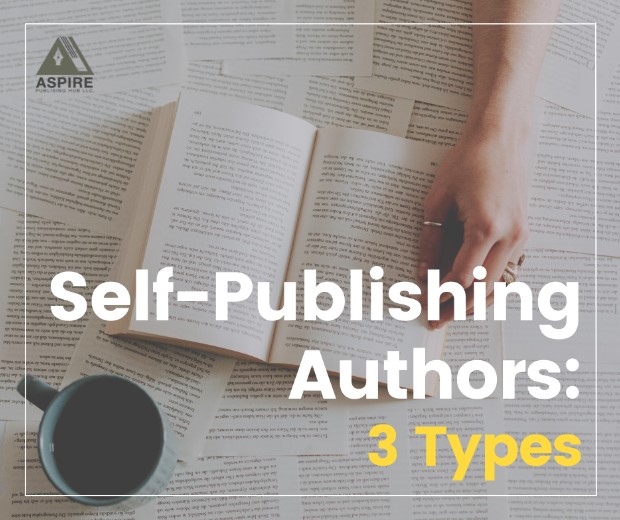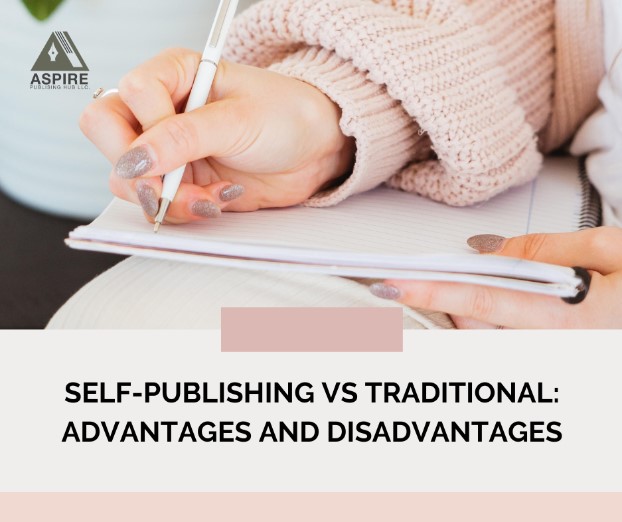There are three distinct categories of self-publishing authors, which can be distinguished based on their goals, attitudes toward readers, and strategies for working with the author-publishing business.
1. The Self-Publishers
A writer of this type is neither motivated by financial gain nor the desire to publish numerous volumes. They want to create a specific book based on their interests or the needs of a particular audience. This group of people accepts the term “self-publishing,” whether they write to build their business or fulfill a longtime dream.
To produce a high-quality book, these book publishers will require the assistance of experts. Still, the emphasis of the writing and publishing process is equally on the author and reader, and it is more production-driven than sales-driven.
A less-than-perfect book is often the road to a better one for a writer and a self-publisher. The snobbery that has traditionally been imposed on these writers’ efforts is ill-judged, as snobbery often is. Self-publishing is giving voice to many hitherto unheard writers and ideas and democratizing access to book publication.
2. The Indie Authors
Independent authors self-publish for profit. Both the exterior benefits of riches and influence, as well as the inside creative rewards of publication, are something they aspire to. To do this, you must assume team leadership and position yourself as the creative director of your writing and publishing business.
The labels “self-publishing” and “independent authorship” are deceptive in several ways. An independently published book must adhere to the same rules as traditionally published books. To ensure their books achieve their maximum potential, they must engage with editors, designers, marketers, aggregators, agents, assistants, sales platforms, and others. They also need to have production and profit plans.
The word “independence” evokes qualities like freedom, disobedience, and self-reliance. Indie authors are comparatively independent compared to authors who sign exclusive contracts with a single trade publisher or self-publishing platform, but only when they accept that empowerment.
The critical distinction is that they begin considering choices for publishing after the first book and set ambitious goals for book production and marketing. They are soon finishing more books, expanding their readership, learning from their failures and achievements, and applying what they have discovered to the next book.
It takes the writer on the most remarkable creative journey of their life. Most need a lot of aid and support at the outset to comprehend what it means to be an indie author and face new ideas and problems.
Those who stick with it begin to engage with the work, taking advice from good beta readers and editors. Understanding where their books fit in the larger publishing ecosystem and relation to comparable authors. Learning what genres, formats, and categories include their projects, discovering what they have to say, and finding their voice.
It takes more than simply understanding the basics of editorial, design, social media, and author business to succeed as an independent author. You also need to locate the platforms, resources, and methods to help you publish your book successfully. Success in this demanding career typically necessitates mental and personal development.
3. The Authorpreneurs
The term “authorpreneur” was invented from the words “author” and “entrepreneur” to describe a novel profession. No other representation effectively captures this type of author. So while some people dislike it and believe it’s forced, it is becoming more popular in the self-publishing industry.
The author business is booming for authorpreneur. They embrace the idea that marketing, business, and writing can all be creative, and they have adopted an autonomous, innovative growth approach. They have achieved exceptional creative and financial success by mastering three different sets of skills: creating excellent books, successfully publishing them, and managing an authoring company.
Additionally, they are consciously using digital technologies, an entrepreneurial attitude, and abilities to make an ongoing, sustainable living as authors.
They know how to effectively use one of the ten possible business models for independent authors to promote, advertise, sell, and profit from their writing.
There have always been authorpreneur. Thanks to digital tools and technology, entrepreneurial authors are now appearing in significantly greater numbers.
Although it may be a new term, it wonderfully captures the current breed of authors that combine writing and enterprise—a new word for these modern times.
When you release your books, you join a modern labor disruption that affects far more than just the writing and publishing industry. Numerous new technologies have entered the market over the last ten years, all of which are quickly updating and upgrading and changing how we operate and interact.
Not every self-publisher aspires to be an indie author and not every indie author desires to be an authorpreneur. So which of the three are you, or do you aspire to be?



